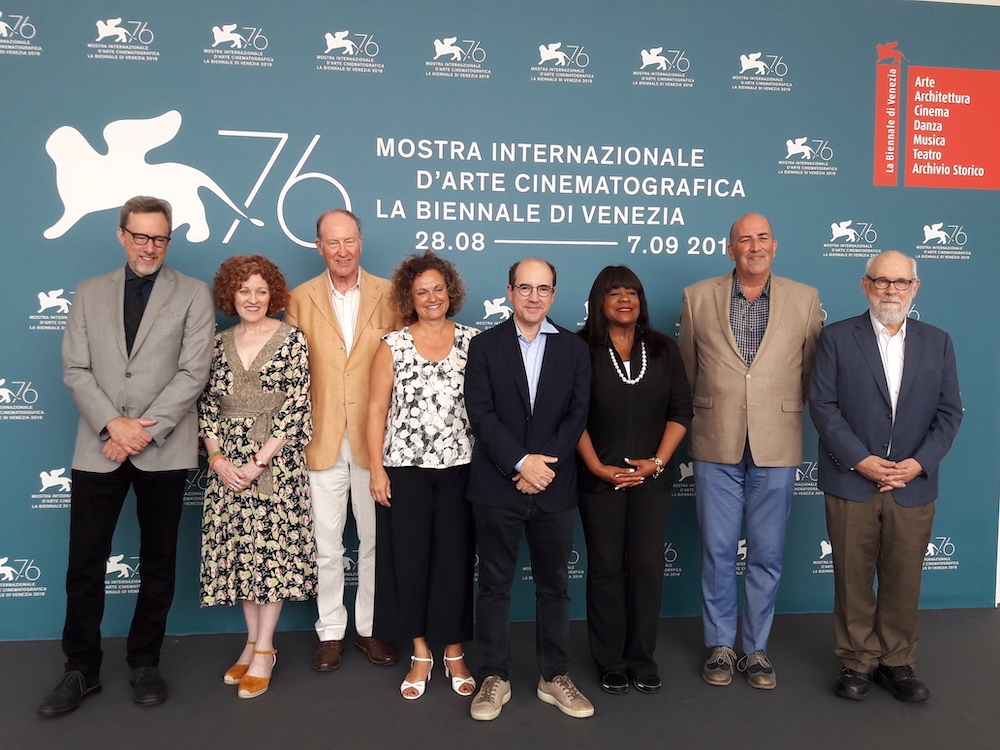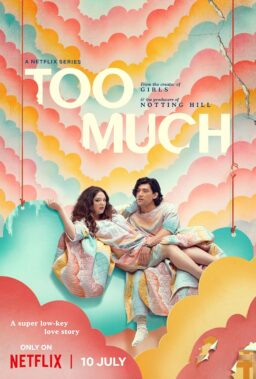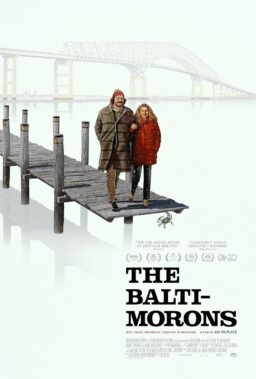Part of my function at the Venice Film Festival is to help the Biennale College put a critical stamp on its yearly mission. This program, after an intensive submission and workshopping process, yields three new feature films once every ten months; each one is funded to the tune of 150,000 Euros.
At this year’s panel, the great film scholar and critic Peter Cowie, who assembles the critics, asked me to weigh in on the extent to which I processed each film through my knowledge of its budget. I responded that a commonplace in mainstream movie assessment, especially of blockbuster fare, is to remark that you were able to see every dollar spent on the screen. But I insisted that any truly good or great movie you see is not one where you’re going to think about such concerns at all. If you believe that film can/should be transportive, you’ll allow that you ought to be transported to a place where you’re not thinking about the picture’s budget.

That said, while watching “This Is Not a Burial, It’s a Resurrection,” a movie set and shot in Lesotho, a small country in western Africa (enfolded, in fact, by South Africa itself), I was so impressed by the film’s varieties of landscape and weather that I did wonder how director Lemohang Jeremiah Mosese managed to pack so much in less than six months. The movie tells the story of Mantoa, an elderly woman in a small village who finds herself the last survivor of her family. She wants retribution for her loss, she wants a safe, stable burial ground, and she’s not shy about making her desires now. Problem is, the whole village is going to be flooded soon for the construction of a dam. I know what you’re thinking: It’s the Jo Van Fleet story arc from “Wild River.” In a sense it is, but in other senses it’s much more. The specificity with which it pursues its most dazzling, hallucinatory conceits is kind of startling. Along with the images, the score by Yo Miyashita and its accompanying sound design constitute a challenge to conventional Western film language. It’s a welcome and necessary one, I think.
“The End of Love,” directed by Keren Ben Rafael from a script she wrote with Élise Benroubi, plays with film language by constricting it. The movie’s examination of a couple’s disintegration is told almost exclusively via their back-and-forths on Skype. Paris-based Yuval and Julie are first seen trying to maintain their once-active sex life with a not-yet-one-year-old infant in the next room. They don’t pull it off but can laugh about it. Yuval, a photographer, goes to Israel for a job, and gets stuck there when it turns out one of his visas is out of date. The passionate couple resolve to sustain their relationship digitally. A grave mistake. Yuval (played by Arieh Worthalter, a charismatic actor who resembles a slightly more bearish Bradley Cooper, down to his guitar-picking talents) is peevish; the longer he stays with his family in Israel, the more resentful he grows about having moved to France with Julie, who has an established career there. He micromanages her care of their adorable kid. He taunts Julie about running into old girlfriends. He drinks and drugs and pouts while Julie tries to juggle work and one-parent child-rearing. The title refers to where the whole thing leads. Despite the large number of excellent therapists in Israel, this may be a scenario where counseling doesn’t help.
“Lessons of Love,” an Italian picture directed by Chiara Campara from a script she wrote with Lorenzo Faggi, is immediately recognizable as a work of clear-eyed but compassionate realism, a true tradition in Italian cinema. Yuri (Leonardo Lippi), an aging manchild with little worldly experience, works on his dad’s farm and wears a lot of hats there. He tends cows, cuts up timber, supervises a beehive. His cousins regularly brag to him about how they soup up their cars, and Yuri shrugs that he hasn’t got the money. We soon see him fixating on a nude dancer at a local adult emporium. Here’s where I thought, well, dude, this is why you can’t upgrade your ride. Agata (Alice Torriani), the stripper in question, at first regards Yuri as a potential mark, it seems. But his simplicity and sincerity win her over. But not, eventually, enough to justify the radical move Yuri makes to continue his pursuit of her.

All of my fellow panelists were impressed with the pictures. Stephanie Zacharek of Time magazine talked about how they showcased cinema as an impeccable medium for putting across the magic of the human face. Scholar David Bordwell spoke of the way the films’ workshopping through the Biennale College contributed to the formal freedom each film enjoyed. The San Francisco Chronicle’s Mick LaSalle spoke of the importance of narrative. Michael Phillips of the Chicago Tribune waxed eloquent on how music brought the films’ emotional impact home. And our own Chaz Ebert, a panel member for the first time, spoke of the way that “Burial” grew on her, mushrooming in emotional impact for days after she saw it. (Also joining us was the great Savina Neirotti, who oversees the program for the Biennale.)
I love talking movies with Chaz because her reactions to them are simultaneously based on her immediate gut-and-heart call and suffused with potent analysis. Her humanism is inextricably braided into her aesthetic. She describes pictures and her reactions to them in a way that’s instantly compelling and thought provoking. She was a great addition to the panel.
As for myself, I said a few things. The point I was most invested in putting across was about diversity. In the U.S. today, discourse is tilting toward the reactionary, even among people who announce themselves as progressive. When the issue of diversity among U.S. filmmakers comes up, then, you’re likely to hear a peculiar caveat: that films by women and people of color and trans people are invariably, inevitably, going to be polemics or complaints based on their own arguably narrow agendas. But to see diversity in action is to understand it’s anything but a bottleneck. Here we have a movie about a 30-year-old male virgin, conceived and directed by a woman and pulled off with incredible insight and sensitivity. Another film about the perils of technology in personal relationship, a topic very frequently mansplained, again by a woman. An African director commissioning a Japanese composer to contribute a LOUD music score that often sounds like Penderecki remixed by a techno DJ. That’s true diversity: unpredictable, unconventional, fantastic.
Header photo: Courtesy of Brian Bennett












